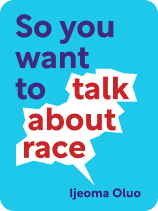

This article is an excerpt from the Shortform book guide to "So You Want to Talk About Race" by Ijeoma Oluo. Shortform has the world's best summaries and analyses of books you should be reading.
Like this article? Sign up for a free trial here .
How do you define cultural appropriation? Why is cultural appropriation problematic?
There’s considerable disagreement about what constitutes cultural appropriation even among people of the same culture. But, how do you define cultural appropriation? Simply put, it is when someone adopts an element of culture that isn’t their own (e.g. a hairstyle or a piece of clothing).
In this article, we will define cultural appropriation, highlight some examples, and explain why cultural appropriation is problematic.
How Do You Define Cultural Appropriation?
Cultural appropriation occurs when members of a dominant culture adopt selected aspects of another culture without respect, background knowledge, or proper attribution.
If we look closely at instances of cultural appropriation, we can see that at their heart is always the same thing: the rights to ownership of a culture. If you can take selected elements of a culture and manipulate them for my own benefit, you’re claiming ownership of pieces of that culture. This is a form of theft.
For example, let’s say a white person wears a sacred Native American war bonnet to a music festival. By doing this, that person is trivializing and overriding whole social structures—he’s bypassing the traditional process for choosing a leader to wear these bonnets and claiming the right for himself.
Or let’s say a white person wears dreadlocks because she thinks they look “cool.” By doing this, she’s ignoring the long history of pain and protest that this hairstyle has for communities of color. If she’s complimented on her new hairstyle while a black person is denied a job for the same hairstyle, this highlights the problems with cultural appropriation.
How Do I Know if Something Is Cultural Appropriation?
To work out whether or not something is cultural appropriation, you can start with the difference between “appreciation” and “appropriation.” Appreciation is learning all you can about the aspects of a culture that interest you and participating respectfully. Appropriation is perpetuating the exploitative power dynamics that characterize White Supremacy.
Let’s take rap music as an example. Rap can be traced back to the royal griot oral history traditions of West Africa. This musical storytelling style came over with the slaves and influenced blues and jazz before evolving into the style we now know as rap. Rap, along with other black music styles, was originally marginalized by the white mainstream. Black artists who performed in segregated clubs weren’t allowed to use the main entrance and were paid far less than white musicians in the same club.
For a long time, white people associated rap with crime and blamed it for social problems. Then white people started imitating rap. They immediately became more famous and more financially successful than their black counterparts, even if they were far less skilled. This white overlay has changed the understanding of what constitutes “good rap,” pushing out talented black artists and making it increasingly difficult for them to succeed.

———End of Preview———
Like what you just read? Read the rest of the world's best book summary and analysis of Ijeoma Oluo's "So You Want to Talk About Race" at Shortform .
Here's what you'll find in our full So You Want to Talk About Race summary :
- How to have an intelligent, empathetic conversation about race
- Why people are afraid to talk about race
- Where racism came from and what fuels it






